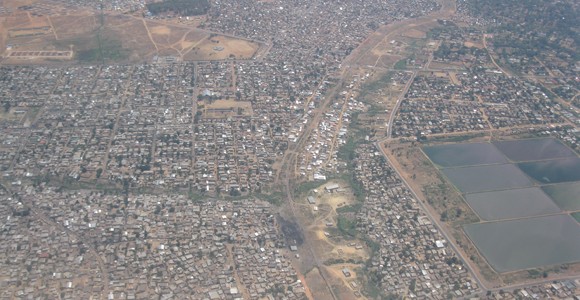
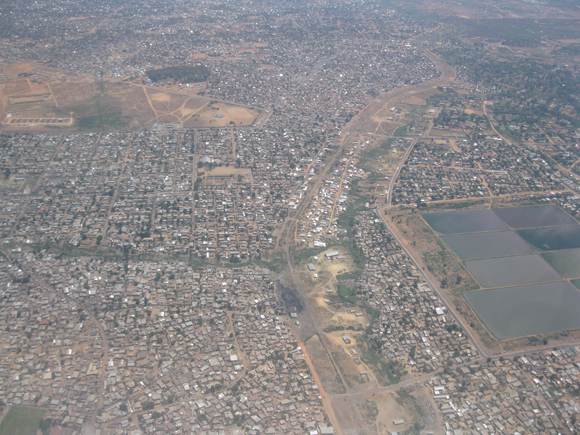
From the air I stared out at the endless expanse of red-brown dirt roads and silver tin roofs spread below me.
Home to over 1.7 million people, Lusaka is one of the developing world’s fastest growing cities. Once on the ground and driving through the dusty streets the scale and size of the city disappeared amongst the level topography. I was amused by the contradictory over-abundance of churches and casinos on offer; each loudly proclaiming their own form of redemption with billboards facing the slow moving traffic.
Construction is evident throughout the city. On the side of the road women sit under makeshift shelters breaking blocks of dazzlingly bright limestone into small pieces, sold in sacks to be mixed with cement for concrete. Shirtless men work hand press brick makers, churning out lines of uniform grey blocks. A prominent tile brand boasts on walls and billboards that: “A roof without Harveytiles is like a farm without a farmer, it’s USELESS.”
Modern shopping centres that could have been transplanted directly from South Africa dotted the roadside, the brands all familiar: Woolworths, Pick n Pay, SPAR, Nando’s, Debonairs & Wimpy. The SPAR we stopped at for essential supplies (beer, water, chocolate, coffee & chips) was running a promotion – with every 2 litre carton of milk purchased shoppers would be entered into a draw to win a live cow. Yes, the prize on offer being a living, breathing, excreting bovine.
I was starting to like Lusaka.
—
Accommodation for the night was at the 5* Intercontinental Hotel, a bubble of colonial luxury. The large, air-conditioned rooms offer everything a travelling businessman needs to get on with the job. Checking my email whilst watching football on DSTV brought a sense of detachment and isolation from the busy city outside.
Later, sitting next to the pool at the hotel’s outdoor restaurant, I slowly sipped a beer and watched the palm trees lazily sway in the humid heat, the sun hidden behind a blanket of clouds which hinted at the prospect of cooling rain. The tables around me were occupied by a scattering of foreigners typing away on laptops or deep in conversation; mostly Chinese with a mix of Europeans and North Americans. Modern hiking boots and functional jeans identified their purpose in Zambia. Copper has been the backbone of the economy from the times of Cecil John Rhodes and the bulk of operations are run by foreign companies.
I turned my attention back to the palm trees and ordered another beer from a smiling waiter.
—
The following morning we made our way out of Lusaka towards Kafue National Park.
We first visited the Kabwata Cultural Village, located in the area of the city that under British rule had been the designated settlement area for Africans. The area is now the Kabwata Cultural Village, a tourist stop where the small community still live in traditional white-walled rondavels (huts) and sell a wide selection of hand-crafted curios; particularly carved wood items.
I exchanged pleasantries with some of the vendors, purchased a bead necklace and colourful bracelet then walked amongst the huts, watching a group of children watch me. Two women sat under a tree, one braiding the others hair. A man wearing a replica Barcelona shirt worked a piece of wood. I asked him who his favourite player is, Messi, he answered.
I spotted one of the children from the group sitting under a tree with his football made from old plastic bags. What is your name? Michael. Do you like football? Yes. Which is your favourite team? He hesitated, and then answered with a smile – Zambia! I returned his smile and gave him a high five before making my way back to the van.
The road to Kafue beckoned.
—–
Travels in Zambia – Part II: The Cow on the Road to Kafue

One of the many casinos in Lusaka
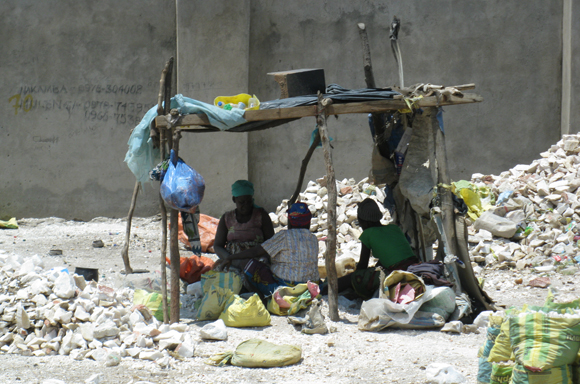
Women breaking rocks on the roadside
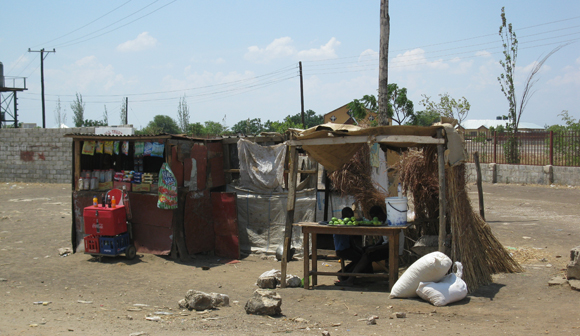
Stalls selling snacks and fruit
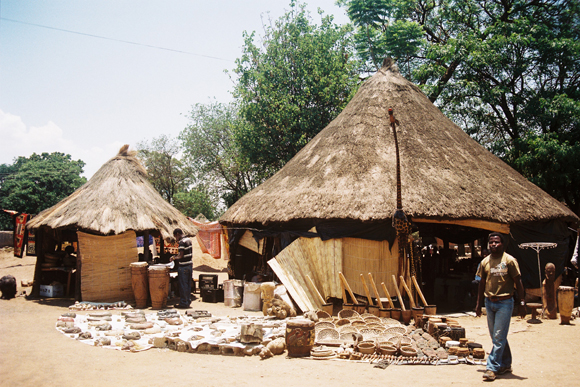
Kabwata Cultural Village
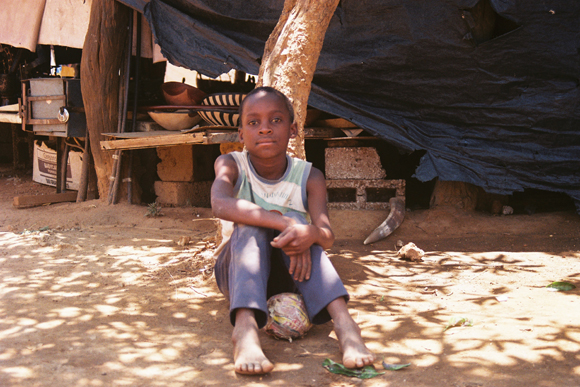
Michael and his football
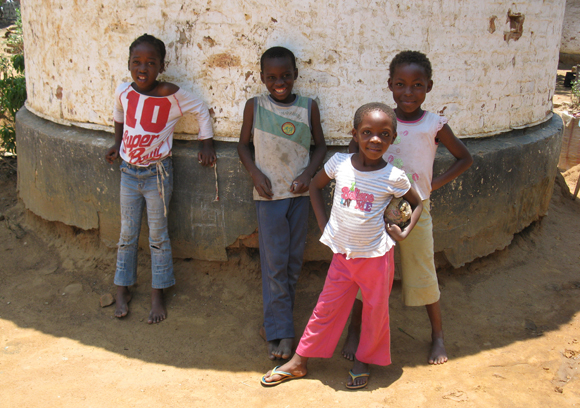
The young children
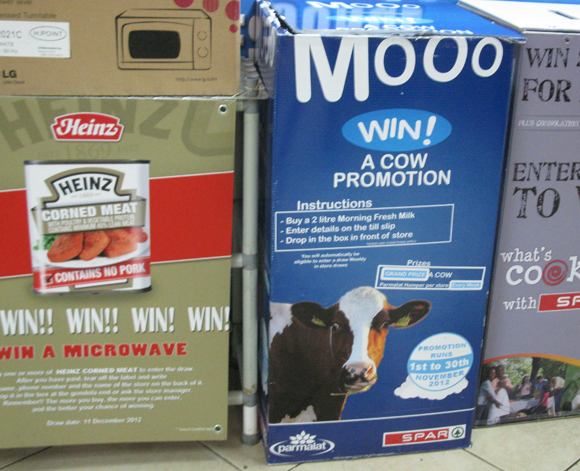
Win a Cow Promotion!
Flights to Zambia provided by Air Namibia
Hospitality provided by the Zambian Tourism Board